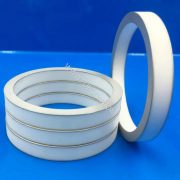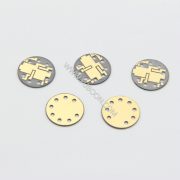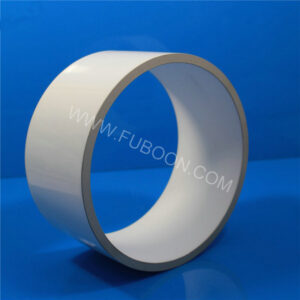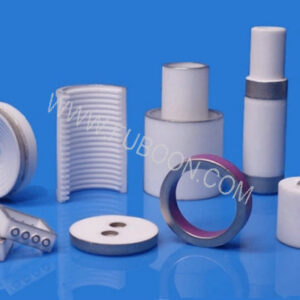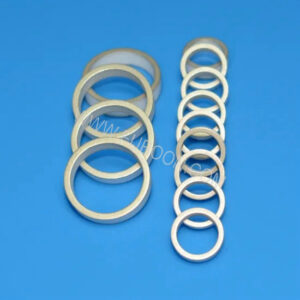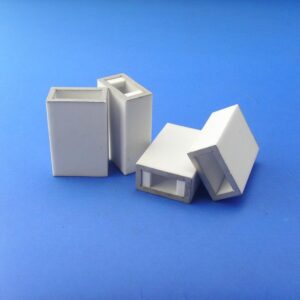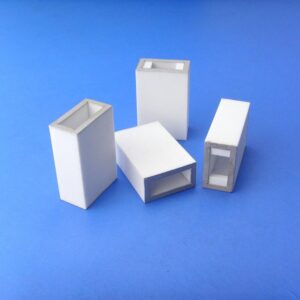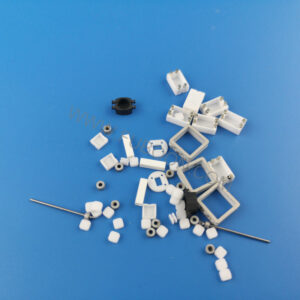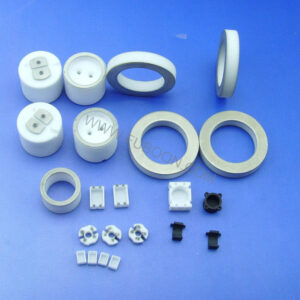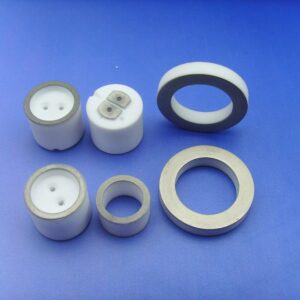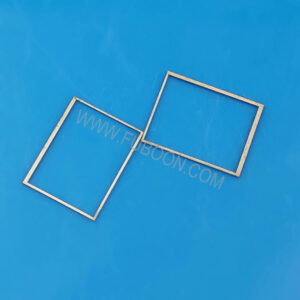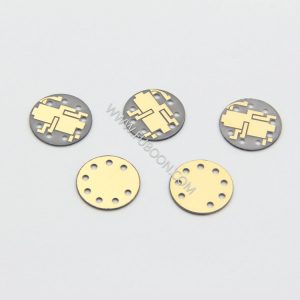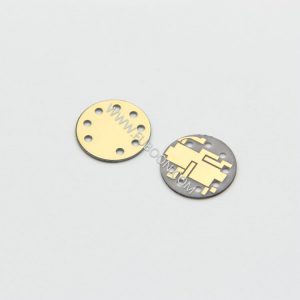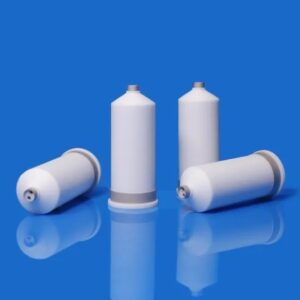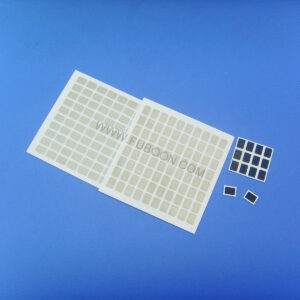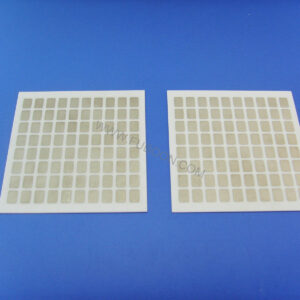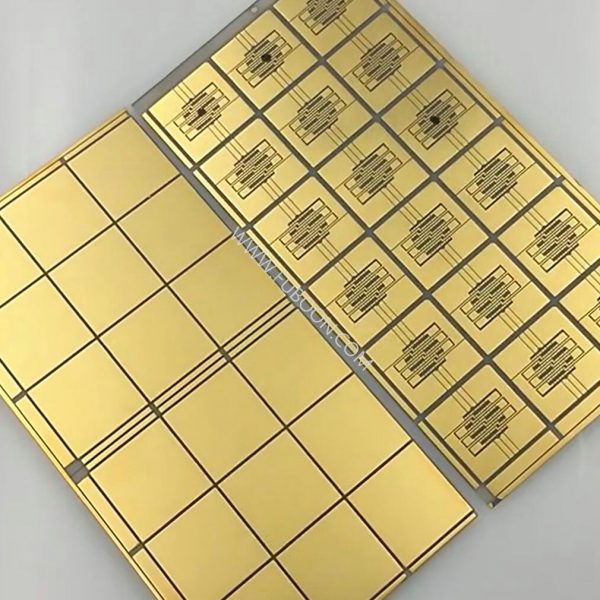
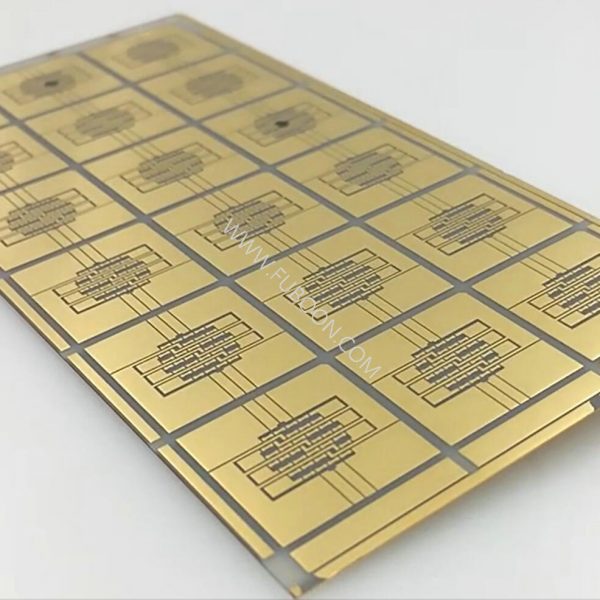
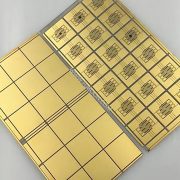
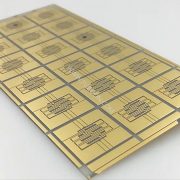
AlN Aluminum Nitride Ceramic Metallized DPC Substrate with Au/Cu Coating
- Description
- Inquiry
Aluminum Nitride Ceramic Metallized DPC Substrate with Au/Cu Coating
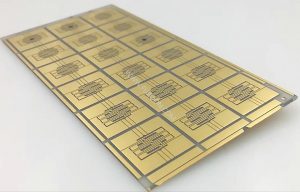
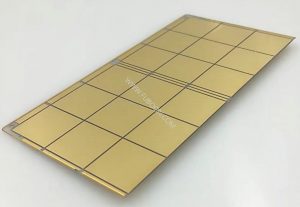
Aluminum Nitride Ceramic Metallized DPC Substrate
Mainly by evaporation, magnetron sputtering and other surface deposition process to carry on the substrate surface metallization, first under the condition of vacuum sputtering, titanium, and then is copper particles, the plating thickness, then finish making line with ordinary PCB craft, and then to plating/electroless deposition way to increase the thickness of the line, the preparation of DPC way contains vacuum coating, wet deposition,Exposure development, etching and other processes.
Aluminum Nitride Ceramic Metallized DPC Substrate
Aluminium Nitride Material Properties | ||||
Properties | FUB-AN180 | FUB-AN200 | FUB-AN220 | |
Color | Gray | Gray | Beige | |
Main Content | 96%ALN | 96%ALN | 97%ALN | |
Main Characteristics | High Thermal Conductivity,Excellent Plasma Resistance | |||
Main Applications | Heat Dissipating Parts,Plasma Resistance Parts | |||
Bulk Density | 3.30 | 3.30 | 3.28 | |
Water Absorption | 0.00 | 0.00 | 0.00 | |
Vickers Hardness(Load 500g) | 10.00 | 9.50 | 9.00 | |
Flexural Strength | >=350 | >=325 | >=280 | |
Compressive Strength | 2,500.00 | 2,500.00 | – | |
Young’ Modulus of Elasticity | 320.00 | 320.00 | 320.00 | |
Poisson’s Ratio | 0.24 | 0.24 | 0.24 | |
Fracture Toughness | – | – | – | |
Coefficient Linear Thermal Expansion | 40-400 degree Celsius | 4.80 | 4.60 | 4.50 |
Thermal Conductivity | 20 degree Celsius | 180.00 | 200.00 | 220.00 |
Specific Heat | 0.74 | 0.74 | 0.76 | |
Thermal Shocking Resistance | – | – | – | |
Volume Resistivity | 20 degree Celsius | >=10-14 | >=10-14 | >=10-13 |
Dielectric Strength | >=15 | >=15 | >=15 | |
Dielectric Constant | 1MHz | 9.00 | 8.80 | 8.60 |
Loss Tangent | *10-4 | 5.00 | 5.00 | 6.00 |
Remark: The value is just for review, different using conditions will have a little difference. | ||||
Related Products
Metallized Ceramic Tube Vacuum Feedthrough Insulator
Metallized Ceramic Tube For Vacuum Feedthrough Insulator
Alumina Metallized Ceramics for Electronic Applications
Alumina Al2O3 Metallizing Ceramic Part
Alumina Al2O3 Metallizing Ceramic Part
Alumina Al2O3 Metallizing Ceramic Parts
Alumina Al2O3 Metallizing Ceramic Parts
Metallized Ceramic Vacuum Interrupters
Metallized Ceramics for Vacuum interrupters
High Temperature Resistance Alumina Metallized Ceramic Ring
High Temperature Resistance Alumina Metallized Ceramic Ring
Insulating Metallized Ceramic Frame
Aluminum Nitride AlN Metallized DBC Substrate/Plate/Disc with Au
High Voltage Alumina Metalized Ceramic Insulator
High Voltage Alumina Metalized Ceramic Insulator for X-ray Tube
Al2O3 alumina insulator ceramic heat sink substrate
Al2O3 alumina insulator ceramic heat sink substrate

